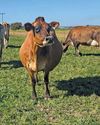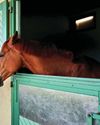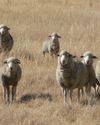Denemek ALTIN - Özgür
What GPS trackers reveal about Cape Town's baboon troop movements
Farmer's Weekly
|Farmer's Weekly 15 April 2022
In this study, Anna Bracken, who recently completed her PhD at Swansea University in Wales, used GPS technology to research the collective behaviour of chacma baboons in an urban area.
FAST FACTS
The presence of cities can alter patterns of risk and reward, and therefore change the behaviour of animals in the wild.
The aim of the study was to determine whether a baboon troop’s collective behaviour changes in urban spaces, a factor that might make them easier to manage in cities.
Understanding the behaviour of chacma baboons is essential for reducing human-animal conflict.
Many animals form groups. Living in a group can protect individuals from predators, reducing risk; it also helps them to find more food, increasing rewards. However, the presence of cities can alter these patterns of risk and reward. When wildlife enters urban space, there’s the potential for the way that individuals behave in groups (their ‘collective behaviour’) to be drastically altered.
Until recently, scientists have known little about the collective behaviour of wild animals, because it’s difficult to observe many individuals at once. Even less is known about wild animals’ collective behaviour in human-changed environments because the physical structure of urban spaces makes observations even harder.
In Cape Town in the Western Cape, wild chacma baboons (Papio ursinus) regularly visit urban spaces in search of high-energy human foods. This can result in negative interactions between humans and baboons, as well as high levels of baboon injury and mortality caused by electric fences, cars, dogs and shooting with pellet guns. The City of Cape Town contracts a private company that employs teams of ‘baboon rangers’ to herd the baboons out of urban spaces in an effort to reduce these negative interactions.
Bu hikaye Farmer's Weekly dergisinin Farmer's Weekly 15 April 2022 baskısından alınmıştır.
Binlerce özenle seçilmiş premium hikayeye ve 9.000'den fazla dergi ve gazeteye erişmek için Magzter GOLD'a abone olun.
Zaten abone misiniz? Oturum aç
Farmer's Weekly'den DAHA FAZLA HİKAYE
Farmer's Weekly
Farmers 'unilateral victims' of climate
Gyeongbuk Provincial Council member Choi Taerim has demanded immediate and substantial support for apple farmers in the South Korean province, urging immediate measures for apple farmers affected by heat damage be implemented, The Asia Business Daily recently reported.
1 min
November 21-28, 2025

Farmer's Weekly
Top agri workers celebrated in the Western Cape
Shannon Robertson, assistant livestock manager at Boschendal near Franschhoek, was crowned the overall winner of the 2025 Western Cape Prestige Agri Awards, held in Durbanville.
1 min
November 21-28, 2025

Farmer's Weekly
Smart dairying: running Jerseys on pasture
The dairy farming sector has seen innovation in milk parlour and cow comfort technology that have allowed farmers to not only yield higher volumes, but extend the productive lifespan of their cows. Albrecht de Jager told Henning Naudé about his approach to maintaining a pasture-raised Jersey herd while utilising precise data measuring technology to ensure quality milk output and optimal cow comfort.
6 mins
November 21-28, 2025

Farmer's Weekly
High-performance dairy farming in the Eastern Cape: the Rufus Dreyer approach
Dairy farming is often described as one of the most technically demanding and strategically complex branches of agriculture.
6 mins
November 21-28, 2025

Farmer's Weekly
Design your stables and camps to assist in AHS control
Keep horses away from areas where disease-carrying midges multiply, like natural pools, lakes, streams and dams, advises Dr Mac.
2 mins
November 21-28, 2025

Farmer's Weekly
The rolling chant that has echoed through SA over the past 30 years
Johan van der Nest is renowned in auction circles and was the first freelance stud-stock auctioneer to begin operating in South Africa.
10 mins
November 21-28, 2025

Farmer's Weekly
Flight from the Red Army
The fall of the Third Reich in 1945 was defined by the Red Army's brutal invasion of Germany. Mike Burgess tells how the Hoppe family trekked from Finowfurt near Berlin to Preetz in Schleswig-Holstein to escape the brutality.
6 mins
November 21-28, 2025

Farmer's Weekly
How to plan a pre-sale feeding programme
Proper feeding of animals before a sale can help producers catch the eye of buyers and increase profits, but it is important to choose the right ration.
8 mins
November 21-28, 2025

Farmer's Weekly
How women are transforming coffee production in Kenya
A group of Kenyan smallholder women farmers are transforming the country's high-value coffee sector by pooling their resources.
5 mins
November 21-28, 2025

Farmer's Weekly
Tough times ahead for SA's grain farmers
Grain farmers face a difficult year ahead with lower grain prices and high production costs
3 mins
November 21-28, 2025
Translate
Change font size

